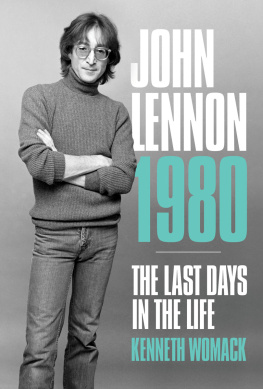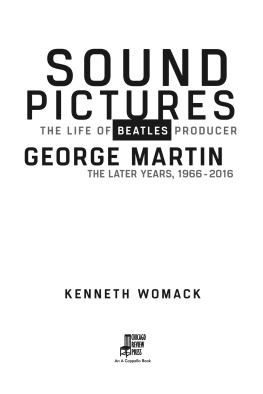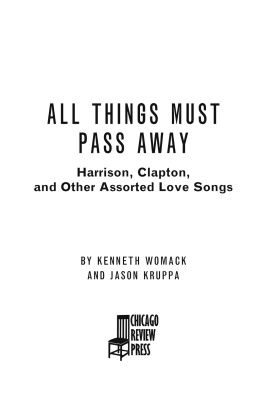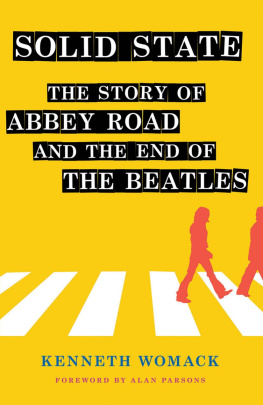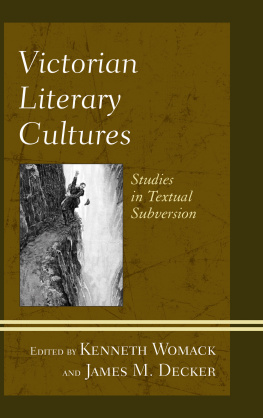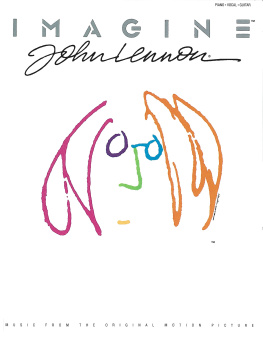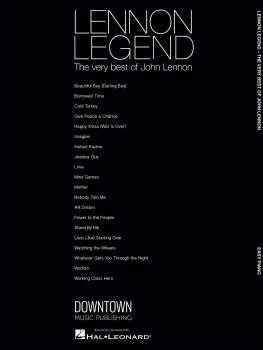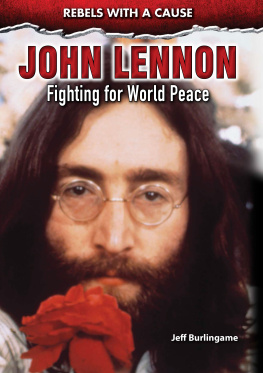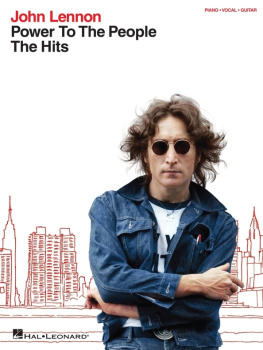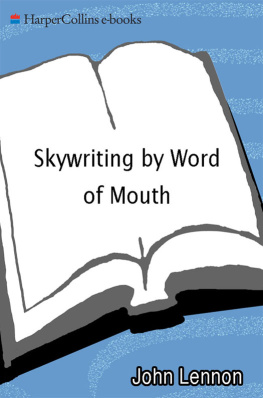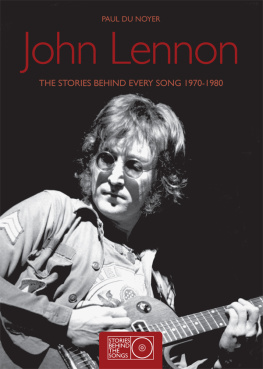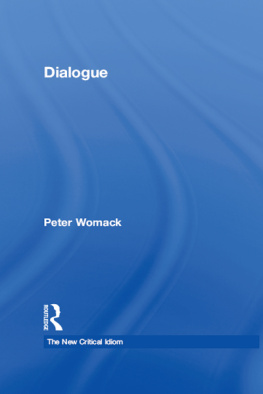Kenneth Womack - John Lennon 1980
Here you can read online Kenneth Womack - John Lennon 1980 full text of the book (entire story) in english for free. Download pdf and epub, get meaning, cover and reviews about this ebook. year: 2020, publisher: Omnibus Press, genre: Detective and thriller. Description of the work, (preface) as well as reviews are available. Best literature library LitArk.com created for fans of good reading and offers a wide selection of genres:
Romance novel
Science fiction
Adventure
Detective
Science
History
Home and family
Prose
Art
Politics
Computer
Non-fiction
Religion
Business
Children
Humor
Choose a favorite category and find really read worthwhile books. Enjoy immersion in the world of imagination, feel the emotions of the characters or learn something new for yourself, make an fascinating discovery.
- Book:John Lennon 1980
- Author:
- Publisher:Omnibus Press
- Genre:
- Year:2020
- Rating:5 / 5
- Favourites:Add to favourites
- Your mark:
- 100
- 1
- 2
- 3
- 4
- 5
John Lennon 1980: summary, description and annotation
We offer to read an annotation, description, summary or preface (depends on what the author of the book "John Lennon 1980" wrote himself). If you haven't found the necessary information about the book — write in the comments, we will try to find it.
John Lennon 1980 — read online for free the complete book (whole text) full work
Below is the text of the book, divided by pages. System saving the place of the last page read, allows you to conveniently read the book "John Lennon 1980" online for free, without having to search again every time where you left off. Put a bookmark, and you can go to the page where you finished reading at any time.
Font size:
Interval:
Bookmark:
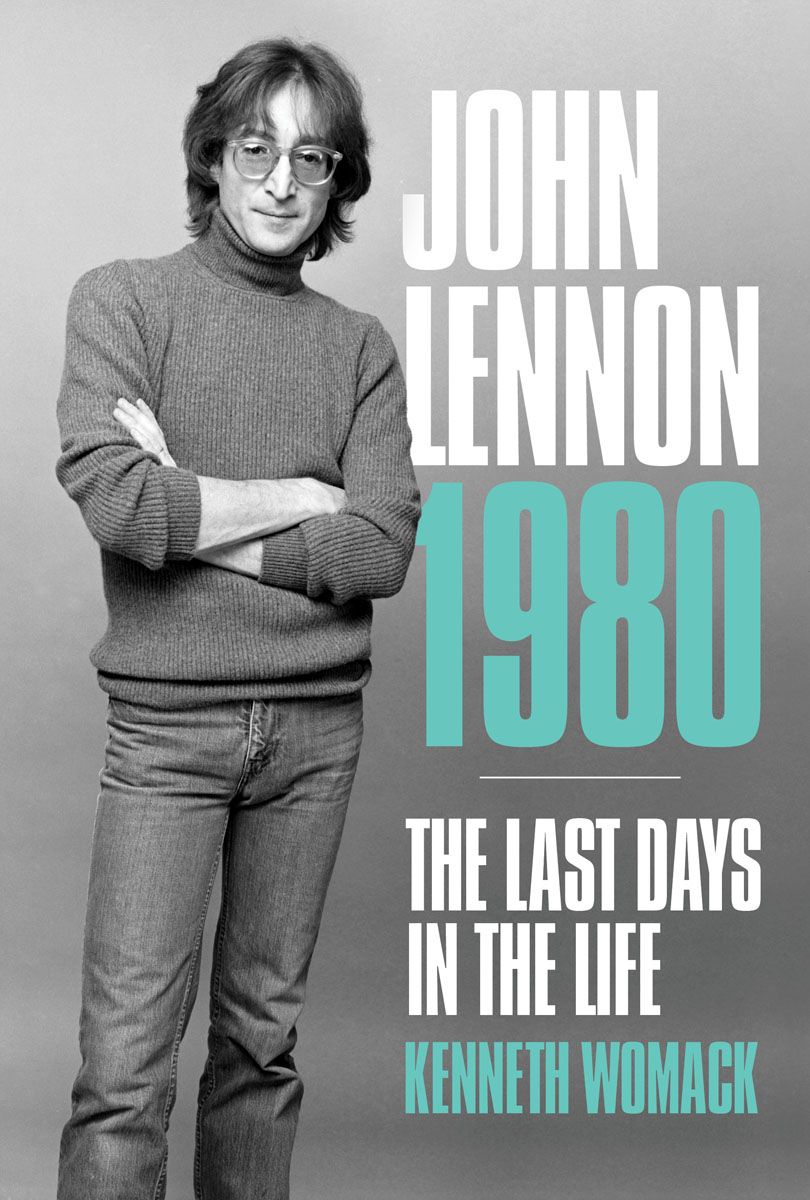

For Oreo Cookie,
A Friend Indeed
Copyright 2020 Omnibus Press
(A Division of the Wise Music Group)
Cover designed by Amazing15
Picture research by Susannah Jayes and the author
ISBN: 978-1-787601-36-9
Kenneth Womack hereby asserts his right to be identified as the author of this work in accordance with Sections 77 to 78 of the Copyright, Designs and Patents Act 1988.
All rights reserved. No part of this book may be reproduced in any form or by any electronic or mechanical means, including information storage or retrieval systems, without permission in writing from the publisher, except by a reviewer who may quote brief passages.
Every effort has been made to trace the copyright holders of the photographs in this book but one or two were unreachable. We would be grateful if the photographers concerned would contact us.
Typeset by Evolution Design & Digital Ltd (Kent)
Printed in the Czech Republic
A catalogue record for this book is available from the British Library.
Everything will be okay in the end. If its not okay, its not the end.
attributed to John Lennon
A dream you dream alone is only a dream. A dream you dream together is reality.
Yoko Ono


I t was late December 1979, with the Christmas holidays in all of their seasonal glitz and glamour having firmly taken hold of New York City. Experiencing one of its mildest winters on record, the Tri-State area had been treated to unusually warm and sunny conditions all month, at one point reaching a balmy 65 degrees Fahrenheit (18 degrees Celsius). But with Christmas looming on the horizon, snowfall had finally descended upon the city, with nearly four inches of the white stuff blanketing the Upper West Side, where John Lennon, the 39-year-old erstwhile leader of the Beatles, lay in wait. He had been a virtual recluse since an April 1975 television appearance in which an acoustic-guitar playing Lennon performed Imagine, his most vaunted peace anthem, and then quietly slipped back into the fortress-like Dakota apartment building. A few months later, his wife Yoko Ono had given birth to the couples first child, Sean, on Johns 35th birthday. And then, as far as the wider world beyond the Dakota was concerned, he had all but disappeared from public life.
In truth, John had been exhausted by his multiyear legal fight to stay in the United States, finally earning his much-coveted green card in 1976. During that same period, he and Yoko, who turned 46 in February 1979, had been reunited after John concluded his debaucherous Lost Weekend on the West Coast with hard-drinking Harry Nilsson, former bandmate Ringo Starr, the Whos Keith Moon, and Johns girlfriend May Pang. But by the time the winter of 1979 made its belated appearance, John had been largely absent from the headlines, save for a January 1977 appearance at President Jimmy Carters inaugural eve gala. At this point, he hadnt released a studio album since 1975s Rock n Roll LP, which was chock-full of the old standards that set his heart ablaze, including the likes of Gene Vincents Be-Bop-A-Lula, Ben E. Kings Stand By Me, and Buddy Hollys Peggy Sue. After Rock n Roll hit the record stores, notching a Top 10 showing on the Billboard charts, Johns solitary output had come in the form of a greatest hits LP. A compilation of Johns solo singles releases, Shaved Fish, had been released only a few weeks after Seans birth and the resolution of Johns immigration battle. Tellingly, the albums liner notes featured a conspicuous message from Dr Winston OBoogie, Johns comic nom de musique: A conspiracy of silence speaks louder than words. If John had left a clue directing listeners to his coming exile, this was surely it. Even more significantly, Shaved Fish completed the ex-Beatles obligations to his bandmates EMI contract, which formally expired a few months later in January 1976. Having opted not to sign a new deal with the label that had been his recording home since 1962, John was left for the first time since the onset of his professional life without the necessity of prepping a new release for the pop music marketplace.
And Johns absence from the music scene would prevail for much of the late 1970s only to be interrupted by, of all things, a newspaper ad. In May 1979, he briefly suspended his self-imposed retirement with a full-page message in The New York Times. Signed as A Love Letter from John and Yoko to People Who Ask Us What, When, and Why, the couple implored the world to understand our silence as a silence of love and not of indifference. Remember, we are writing in the sky instead of on paper thats our song. Lift your eyes and look up in the sky. Theres our message. Pointedly, nearly a decade had passed since the couples last message to the world. In December 1969, they had launched an elaborate billboard campaign in major cities across the globe, declaring WAR IS OVER! If You Want It Happy Christmas from John & Yoko.
But this time, the stakes were dramatically different and lower. Back then, the famous couple had joined the mounting ranks of the counterculture to protest the ongoing atrocities of the Vietnam War. Ten years later, they were clearly dipping a very public toe into the roiling, increasingly crowded waters of late 1970s pop culture. While some readers found the Lennons message of goodwill to be confusing, even elliptical were they simply trying to reassert their relevance in a world that had otherwise passed them by? others felt refreshed by John and Yokos well-meaning thoughts from their retreat on the Upper West Side. Although the May 1979 missive attributed their absence to the couples long-term engagement in a spring-cleaning of our minds, the notion that Lennon had earned his retirement many times over was a matter of little, if any actual debate. Hed spent nearly the entirety of his adulthood on the music business ceaseless merry-go-round, devoting his late teen years and early twenties to trying to wrestle his way onto the damned thing in the first place.
But even still, John and Yoko had their share of detractors. Chief among the unconvinced was Rolling Stones brash writer Dave Marsh. The 29-year-old music critic had made a name for himself as arguably the most acerbic and malcontented reviewer in the magazines vaunted pages. And the reading public loved him for it. Yet when it came to Lennon a bona fide hero of Marshs from his formative years in the 1960s the prickly writer let down his guard and waxed idealistic. In a series of open letters to John, the second of which was published in response to the Lennons New York Times communiqu, Marsh entreated John to suspend his retirement and assist the citizenry of the Western world in making sense of the beguiling post-1960s, post-Watergate, post-Vietnam landscape.
I felt pretty smart, Marsh later recalled. We resented him for leaving us during the late 1970s. Like most rock fans, I took it for granted that John Lennon existed to pump out entertainment, inspiration, and insight. And thats when Johns reaction to Marshs open letters trickled back to the writer through mutual friends. I dont fucking owe anybody anything, John bluntly observed. Ive done my part. Its everybody elses turn now. Marsh was understandably devastated. Rather than inspiring his hero to effect a bravura return to the music world, he had succeeded in eliciting Lennons well-placed ire. I felt pretty small, Marsh admitted. It never occurred to me, until then, that my attitude reduced someone I thought I loved and admired to the status of a vending machine.
Next pageFont size:
Interval:
Bookmark:
Similar books «John Lennon 1980»
Look at similar books to John Lennon 1980. We have selected literature similar in name and meaning in the hope of providing readers with more options to find new, interesting, not yet read works.
Discussion, reviews of the book John Lennon 1980 and just readers' own opinions. Leave your comments, write what you think about the work, its meaning or the main characters. Specify what exactly you liked and what you didn't like, and why you think so.

